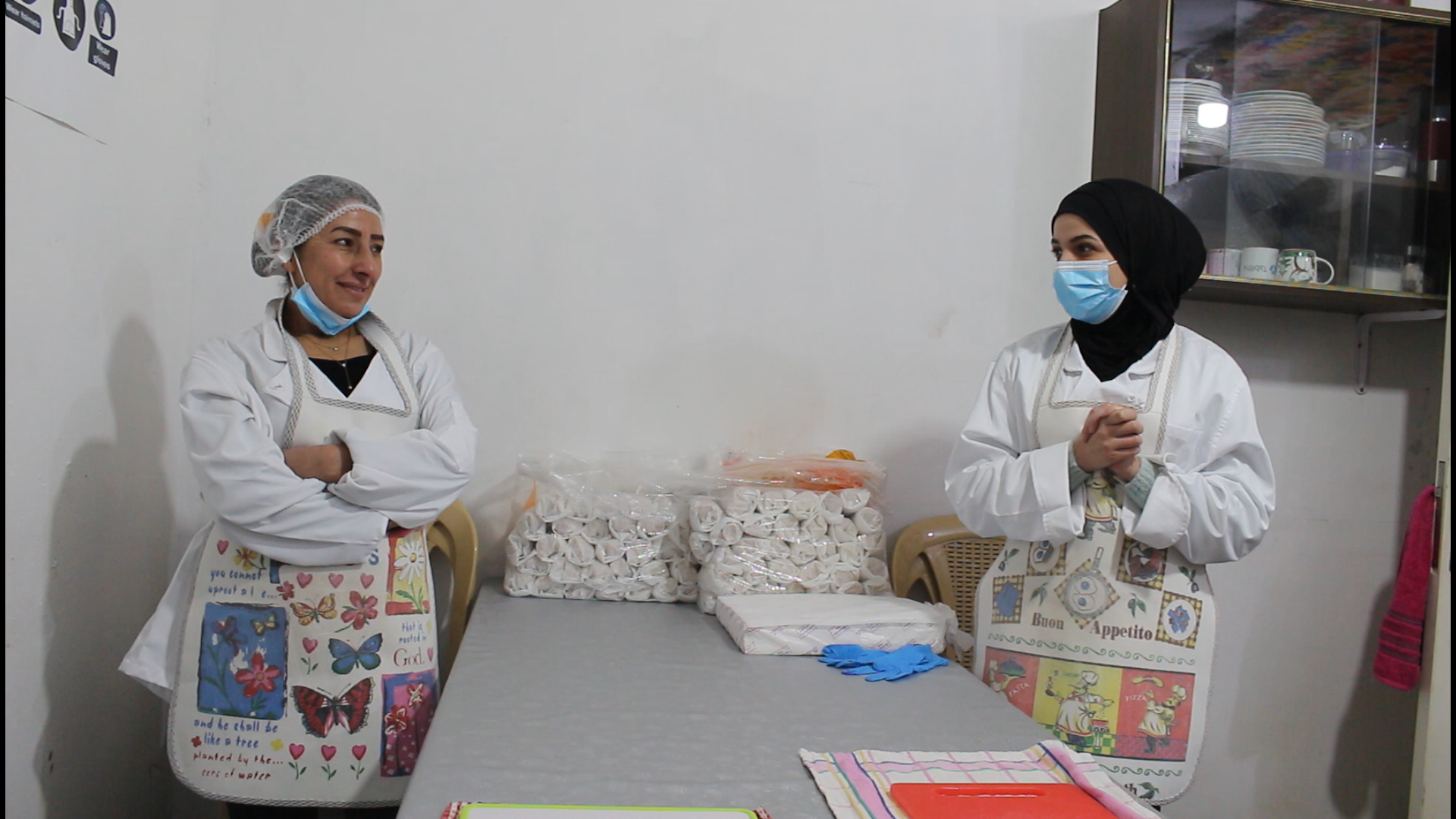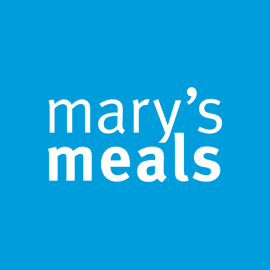International Friendship Day
A recipe for unity: the unlikely friendship of Rinda and Fatmeh
In the bustling kitchen of a community centre in Lebanon we meet Rinda and Fatmeh, two dedicated volunteer cooks who are finding joy serving meals together as part of the Mary's Meals school feeding program. Their heartwarming testimonies reveal the transformative power of our work, which is helping to foster unity and break down barriers of discrimination in a place that’s had more than its fair share of difficult times.

Rinda and Fatmeh, both proud mothers, are enthusiastic when asked about their work for Mary's Meals. Rinda, who is Lebanese, appreciates the fact the program is well structured and efficient: “Volunteering with Mary’s Meals is the only work I have. I’m very happy as it’s well organized … which should be clear looking at this kitchen!”
Her colleague Fatmeh is a Syrian refugee. She finds fulfilment in witnessing her own children's enjoyment of the nutritious meals provided in partnership with Mary's Meals. “My kids enjoy the teaching, but they also enjoy the food. The food is the most important thing to them.”
Rinda and Fatmeh’s dedication and commitment to their roles shine through as they embrace the opportunity to make a difference in the lives of children and their communities. And in a place where locals and refugees live their daily lives together, the school feeding program not only nourishes young minds and bodies but also serves as a catalyst for unity and understanding.
It is estimated that Lebanon is currently hosting 1.5 million refugees and discrimination and prejudice are sadly common. Despite this context, Rinda emphasises that cultural and social backgrounds should not define the connections between people. “We are doing lots of activities that encourage children to meet each other so culturally people are closer. So, regardless the background of each person, we are all brothers and sisters, and we are all on the same page.
“People that discriminate will often be a little bit limited in their thinking, but on the other hand, many of us have severe challenges. People should help and support and communicate with each other, and here we can be close together.”
The program we run here with our partner Dorcas has offered a platform for people who otherwise may not have met to come together and share their challenges – supporting one another, exchanging ideas, and building a sense of belonging. Rinda recounts how she discovered commonalities among colleagues from Lebanon and Syria, and how having the opportunity to talk about challenges and exchange advice has been helpful for her.
“I’m not someone who has lots of free time. I give all my time for family. But when I started working volunteering in this program, I met people from different backgrounds from Syria from Lebanon. And they are talking to each other, they are sharing their challenges to each other, they are listening and they are exchanging sometimes hints. I tell you something, you tell me something, it’s a lovely regular discussion that’s happening.”
This camaraderie breaks down the barriers that can come from a fear of the unknown, encouraging empathy and understanding among individuals who might have otherwise remained distant.
Despite their joy in their work, Rinda and Fatmeh still have anxieties about their children’s education because of ongoing issues faced by schools in the region. Fatmeh expresses her deep concern about disruption to the education system caused by strikes and her worries highlight the vital role of schools in shaping the future of a country: “I really hope for improvement in education. The strikes now and the schools are affecting the education of the country because public schools are on strike. My main concern is education.” Rinda echoes her friend’s opinion, and adds that her children have more challenges during the strikes, as they spend more time at home.
Through their involvement in Mary's Meals' school feeding program, Rinda and Fatmeh are putting into action their belief in the connection between nutrition and education. By providing reliable and filling meals to children, school feeding promotes physical wellbeing as well as giving students more energy to participate in lessons and concentrate on learning.
These unlikely friends wholeheartedly believe that a strong education system is essential for the growth and development of their communities and the country as a whole. Rinda and Fatmeh are a living demonstration that sharing meals can help us transcend cultural differences and create friendships and the basis for a supportive community.
In Lebanon, the Mary's Meals school feeding program is bringing much-needed nutrition to children while they learn, while planting seeds of compassion and unity within blended communities.
Just $31.70 feeds a child for a whole school year.
